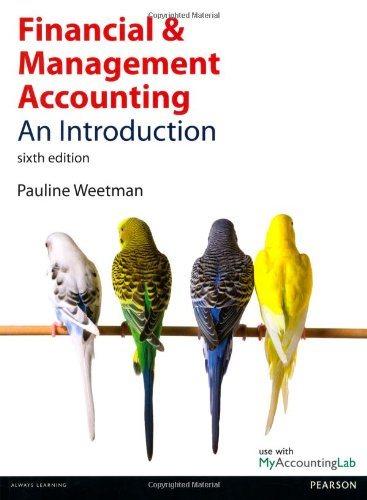BHP Billiton is to abandon its involvement in titanium mining and has also confirmed cutbacks in nickel
Question:
BHP Billiton is to abandon its involvement in titanium mining and has also confirmed cutbacks in nickel ore production in response to weaker metal prices and the impact of a strengthened Australian dollar. The world's biggest mining company by market value confirmed on Wednesday it was selling its 37 per cent stake in Richards Bay Minerals, the South African titanium producer, to Rio Tinto, which already owns a 37 per cent stake. The sale, for an undisclosed sum, marks a further restructuring of BHP's diamonds and speciality products business, historically a small contributor to group earnings, which are driven by iron ore, copper, and oil. BHP said in November that it was exploring whether to put its diamonds business, centred on the Ekati mine in Canada, up for sale.
Both moves follow the promotion of Graham Kerr, the division's former president, to become BHP's chief financial officer from the beginning of this year.
Rio Tinto, which produces titanium at an operation in Madagascar, will double its share in RBM to 74 per cent. BHP described RBM, which is also a producer of iron ore, as 'the primary producer of chloride titanium feedstock' and 'one of the world's highest margin heavy minerals businesses'.
Last year, the venture achieved sales of \(\$ 1 \mathrm{bn}\), with gross margins of 38 per cent. But BHP said the titanium minerals industry was one of the smallest markets in which it participated and was 'unlikely to make a significant contribution to the company's future profitability'. The decision by BHP to abandon its interest in producing the lightweight industrial metal is consistent with other planned moves out of more peripheral markets.
It coincides with a decision by BHP to cut 150 staff and temporarily reduce mining production at its Nickel West unit centred on operations at Mount Keith, in Western Australia. The unit is Australia's largest nickel producer but, in the year to June, nickel generated less than 2 per cent of BHP's operating profit.
BHP said on Thursday it would spend \(\$ 779 \mathrm{~m}\) to expand its iron ore shipping facilities at Port Hedland in Western Australia by \(100 \mathrm{~m}\) tonnes per year.
The project, which is expected to be reviewed for full approval in the fourth quarter of calendar year 2012, has an embedded option to expand by a further \(100 \mathrm{~m}\) tonnes per year, the company said.
Discussion points
1 What factors caused BHP Billiton to abandon its involvement in titanium mining?
2 To what extent did the contribution to profit influence the abandonment decision?
Step by Step Answer:

Financial And Management Accounting An Introduction
ISBN: 9780273789215
6th Edition
Authors: Prof Pauline Weetman





